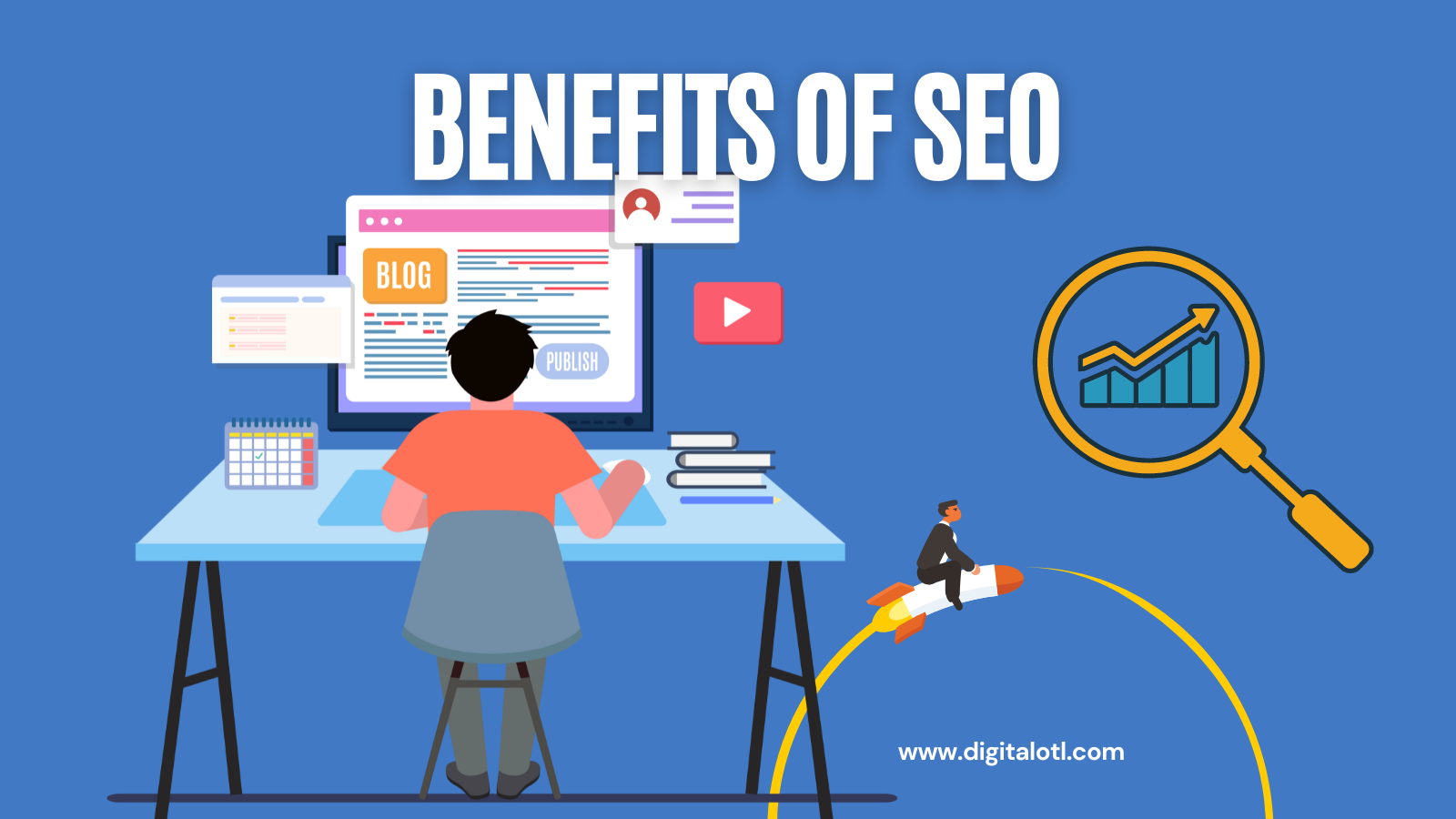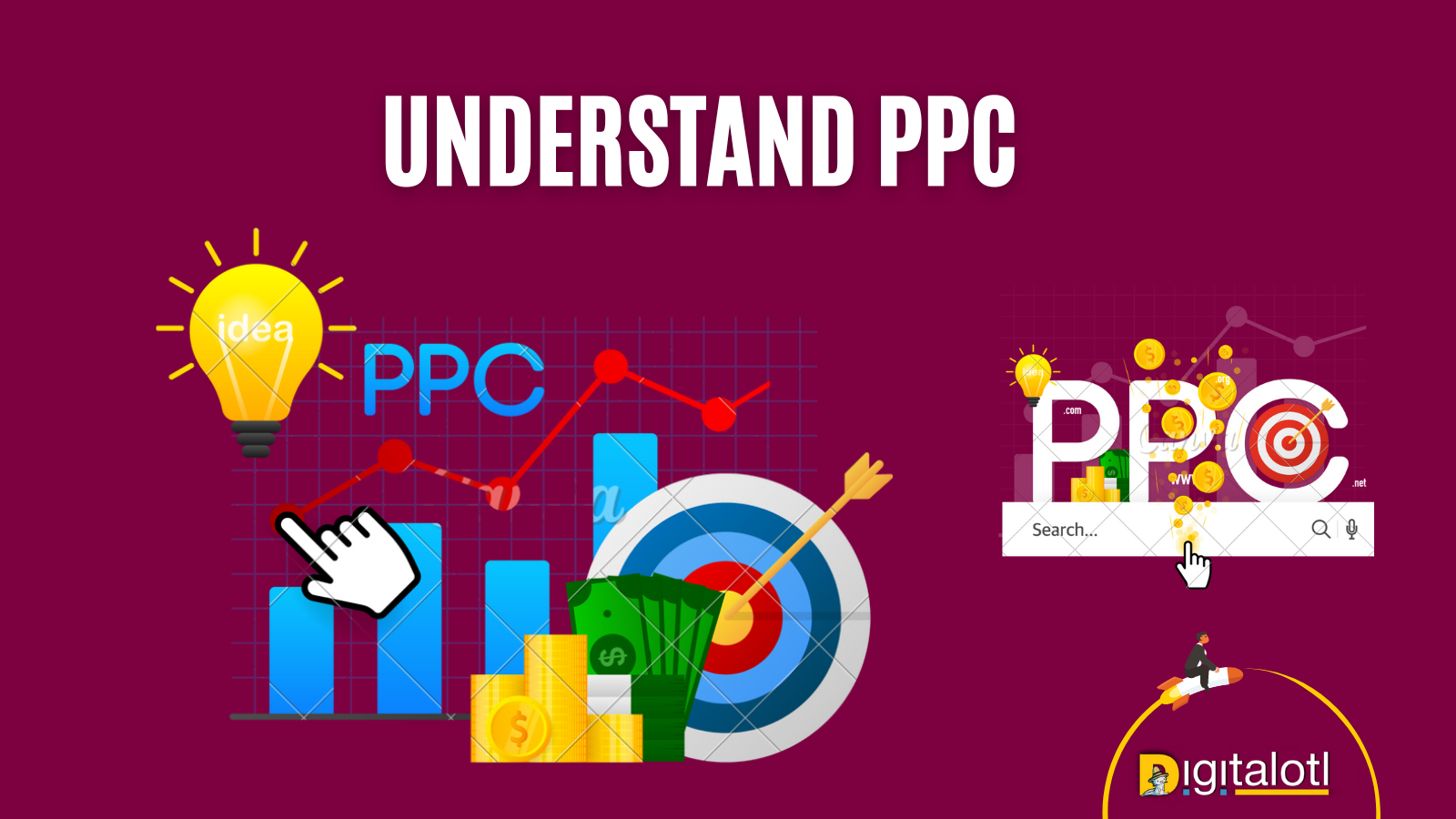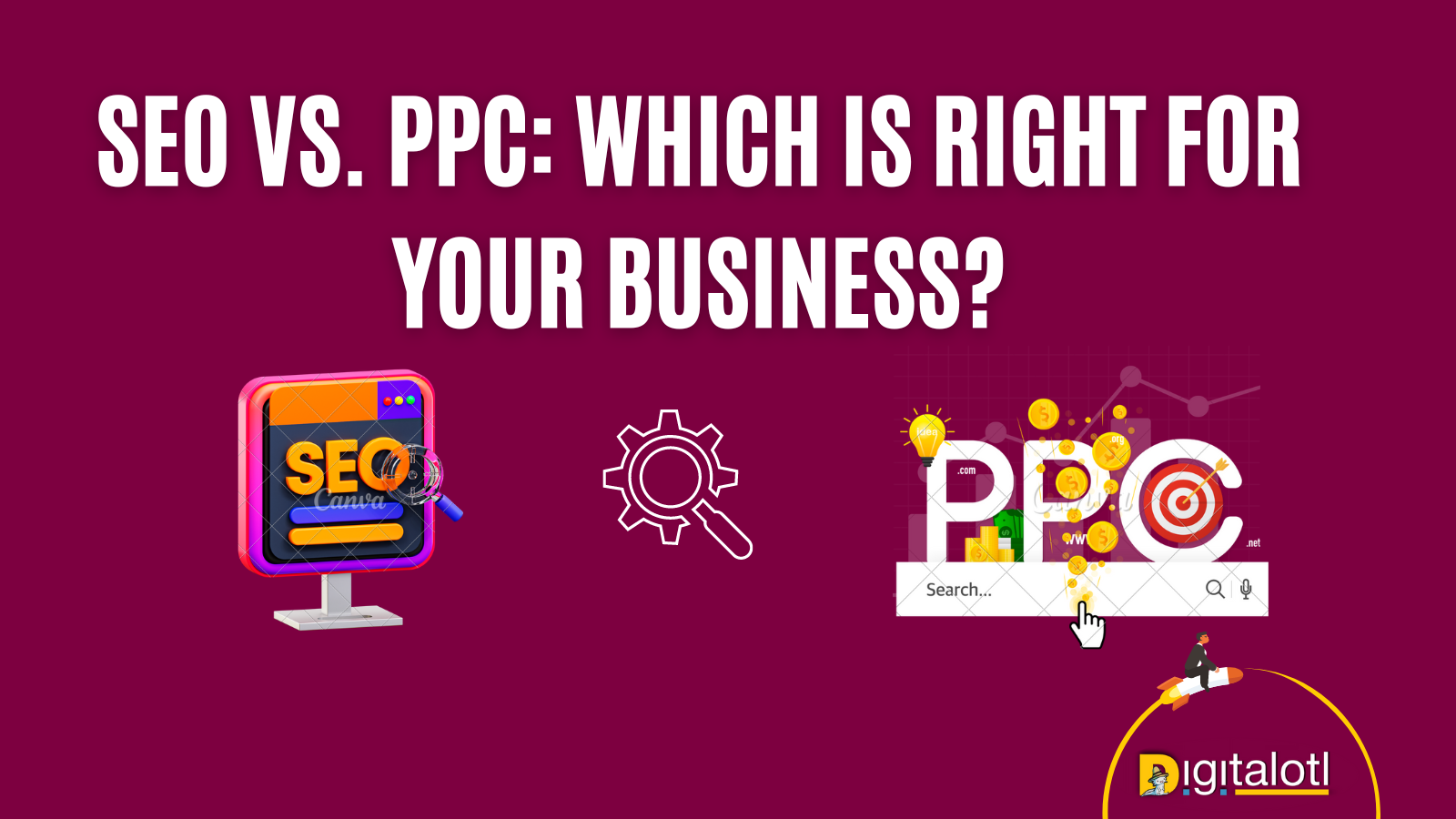Are you looking to enhance your online presence and drive more traffic to your website? In the realm of online marketing, two prominent tactics rise above the rest: Search Engine Optimization (SEO) and Pay-Per-Click (PPC) advertising. Both approaches offer unique advantages and can help you achieve your business goals. However, understanding the differences between SEO and PPC is crucial in determining which method is right for your business. In this article, we’ll delve into the intricacies of SEO and PPC, comparing their benefits, costs, and effectiveness. By the end, you’ll be equipped with the knowledge to make an informed decision that aligns with your business objectives.
Table of contents
Related Article For you: SEO vs SEM: Which One is Right for Your Business? Must Read
Introduction
In today’s competitive digital landscape, businesses must employ effective marketing tactics to gain visibility and attract customers. SEO and PPC are two primary methods used to increase website traffic and improve online visibility. Let’s delve deeper into each approach to gain a better understanding of its functionalities and benefits.
Understanding SEO

What is SEO?
SEO stands for Search Engine Optimization. It is the practice of optimizing your website and its content to improve organic search engine rankings. By implementing SEO strategies, businesses aim to appear higher in search engine results pages (SERPs) when users search for relevant keywords.
How does SEO work?
SEO involves a combination of on-page and off-page optimizations. On-page SEO focuses on optimizing elements within your website, such as meta tags, headings, content, and URLs, to make it more search engine-friendly. Off-page SEO involves building high-quality backlinks, social media signals, and online mentions to increase the authority and credibility of your website.
Benefits of SEO
SEO offers several benefits for businesses:
Improved organic visibility: With higher search engine rankings, your website becomes more visible to users searching for your products or services.
Increased organic traffic: Higher visibility leads to more organic traffic, resulting in potential customers visiting your website.
Long-term sustainability: Unlike PPC, which requires ongoing investment, SEO can provide long-term benefits with consistent effort.
Credibility and trust: Ranking high in organic search results helps build trust and credibility with your target audience.
Cost-effective: While SEO requires investment in terms of time and resources, it is generally more cost-effective than PPC in the long run.
Exploring PPC

What is PPC?
PPC, short for Pay-Per-Click, represents an internet advertising approach in which advertisers compensate for each click their ads receive by paying a predetermined fee. In PPC campaigns, businesses create and bid on keywords relevant to their target audience, and their ads are displayed on search engine results pages or partner websites. To check ads bid and do keyword research you can take the help of Google Ads.
How does PPC work?
PPC campaigns operate on a bidding system. Advertisers bid on keywords, and when a user searches for those keywords, the search engine determines the highest bidder and displays their ad. Advertisers only pay when their ad is clicked, hence the name “Pay-Per-Click.”
Benefits of PPC
PPC offers several advantages for businesses:
Immediate visibility: PPC ads are displayed prominently at the top of search engine results, providing instant visibility to potential customers.
Precise targeting: PPC platforms offer advanced targeting options, allowing businesses to reach specific demographics, locations, or interests.
Control over budget: Advertisers can set daily or monthly budgets, ensuring they have full control over their advertising spend.
Measurable results: PPC campaigns provide detailed metrics and insights, allowing businesses to track their ad performance and optimize accordingly.
Effective for short-term goals: If you need quick results or want to promote specific offers or events, PPC can deliver immediate traffic and conversions.
Comparing SEO and PPC

When deciding between SEO and PPC, it’s essential to consider various factors to determine which method aligns best with your business objectives.
Cost-effectiveness
SEO requires ongoing efforts and investments in content creation, technical optimizations, and link building. While it may take time to see significant results, the long-term benefits can outweigh the costs. On the other hand, PPC provides immediate visibility but requires a continuous budget to maintain ad campaigns.
Timeframe for results
SEO is a long-term strategy that requires patience. It may take months to see noticeable improvements in search rankings and organic traffic. PPC, however, delivers immediate results as soon as your ads are live.
Targeting options
Both SEO and PPC offer targeting options, but they differ in their approach. SEO targets organic search traffic based on relevant keywords and content optimization. PPC allows precise targeting based on demographics, locations, interests, and specific search queries.
Long-term vs. short-term strategy
SEO is a sustainable long-term strategy that can generate consistent organic traffic over time. PPC, on the other hand, is suitable for short-term campaigns or when immediate visibility and conversions are crucial.
Credibility and trust
Ranking highly organically in search results enhances credibility and trust in the eyes of users. PPC ads, although effective, may be perceived as paid advertising and not carry the same level of trust.
Organic vs. paid visibility
SEO focuses on organic visibility, where your website appears naturally in search results. PPC provides paid visibility through sponsored ads at the top of search results pages.
Choosing the Right Strategy
Selecting the appropriate strategy depends on various factors specific to your business. Consider the following when deciding between SEO and PPC:
Factors to consider: Analyze your target audience, industry competition, and business goals to determine which approach aligns best with your requirements.
Budget allocation: Evaluate your marketing budget and allocate funds accordingly to ensure a balanced approach.
Business goals: Determine whether you seek long-term sustainable growth or short-term visibility and conversions.
Competition analysis: Assess the competitiveness of your industry and the effectiveness of SEO and PPC strategies employed by your competitors.
Integration possibilities: SEO and PPC can complement each other. Explore the integration of both strategies to maximize your digital marketing efforts.
Conclusion
Deciding between SEO and PPC depends on your business goals, budget, and timeline. SEO is a long-term strategy that provides sustainable growth and credibility, while PPC offers immediate visibility and precise targeting. Consider your specific needs and integrate both strategies if possible, to maximize your digital marketing efforts.
When faced with the choice between SEO and PPC, it becomes evident that no universal solution can cater to every situation. Each method has its unique advantages and considerations. SEO offers long-term sustainability, credibility, and cost-effectiveness, while PPC provides immediate visibility and precise targeting. To make an informed decision, consider your business goals, budget, and competition. Remember, you can also integrate both strategies to create a comprehensive digital marketing approach that leverages the strengths of each method.
Frequently Asked Questions (FAQs)
Q1. Is SEO or PPC better for long-term results?
While PPC delivers immediate results, SEO is better suited for long-term sustainability. With SEO, you can build organic visibility and attract consistent traffic over time, whereas PPC requires ongoing investment to maintain visibility.
Q2. Which strategy is more cost-effective: SEO or PPC?
In terms of long-term cost-effectiveness, SEO generally outweighs PPC. Although SEO requires initial investments in content creation, optimization, and link building, the ongoing costs are relatively low. PPC, on the other hand, requires continuous budget allocation for ad campaigns.
Q3. Can SEO and PPC be used together?
Absolutely! In fact, integrating SEO and PPC can be highly effective. You can use PPC to gain immediate visibility while your SEO efforts gradually build organic rankings. Additionally, PPC can provide valuable data and insights that can inform your SEO strategy.
Q4. How long does it take to see results with SEO?
SEO is a long-term strategy that requires patience. Achieving notable enhancements in search rankings and organic traffic might require a span of several months. However, the results are worth the wait as they can provide sustainable growth and visibility.
5. Which strategy is better for targeting specific audiences?
Both SEO and PPC offer targeting options, but they differ in their approach. SEO targets organic search traffic based on relevant keywords and content optimization. PPC, on the other hand, allows precise targeting based on demographics, locations, interests, and specific search queries. Therefore, PPC may be more suitable for targeting specific audiences with immediate precision.
If you want to read more information about how to boost your website traffic, visit our website “Digitalotl Blog” for a wealth of valuable insights, tips, and strategies related to SEO.
